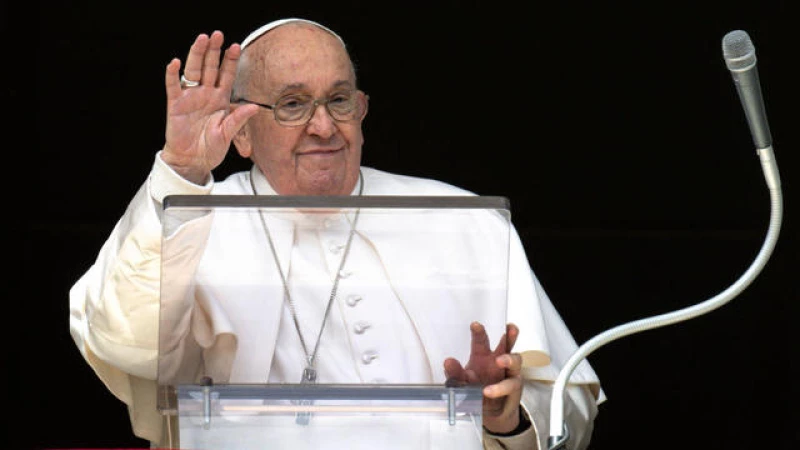Rome — The Vatican has issued a strong condemnation of gender-affirming surgery and maternal surrogacy in a newly released document, asserting that these practices are not in line with God's intended plan for human life. The Catholic Church's document equates both procedures with abortion and euthanasia, citing their perceived negative impact on human dignity.
The document, named "Infinite Dignity," reaffirms the Catholic belief that individuals cannot change their gender, as men and women are created by God with inherent biological distinctions.
Developed over a period of five years and endorsed by Pope Francis, the declaration emphasizes the significance of honoring these distinctions and warns against efforts to challenge them and "play God."
While recognizing the complexities surrounding "genital abnormalities" that may be present from birth or arise later in life, the document suggests that such situations could be addressed with the guidance of medical professionals.
Aside from upholding traditional Catholic teachings against abortion and euthanasia, the 20-page document also tackles modern challenges such as poverty, warfare, human trafficking, and involuntary migration.
Regarding the practice of surrogacy, a recent document from the Vatican strongly opposes it, citing the Roman Catholic Church's stance that the child involved in surrogacy arrangements is often treated as a mere object to fulfill the desires of others, regardless of whether the woman carrying the child does so willingly or under coercion.
This reaffirmation of the Church's position comes after Pope Francis condemned surrogacy as "deplorable" in late 2023, expressing concerns about potential human trafficking issues when biological parents and surrogate mothers are located in different countries.
Surrogacy laws vary globally, with only a handful of countries and some U.S. states permitting commercial surrogacy. Other regions allow altruistic surrogacy without monetary exchanges, while many European nations have outright banned the practice.
In a 2017 speech, Pope Francis also criticized gender affirmation treatments, labeling them as a violation of human dignity.
The release of this new document is seen as a gesture towards conservative factions within the Church, following a controversial statement allowing blessings for same-sex couples and the baptism of transgender individuals as godparents, which faced backlash from conservative bishops worldwide, particularly in Africa.
In 2023, the Pope emphasized the importance of not being judgmental and exclusionary, stating, "We cannot be judges who only deny, reject, and exclude."
Conservative clergy members expressed dismay, arguing that blessing same-sex marriages contradicts centuries of Catholic doctrine.
Concerned American conservative leaders have issued a warning that any deviation from doctrine by Francis could lead to a permanent division within the church.
The most recent document released also highlights the issue of "unjust discrimination," particularly in nations where transgender individuals face legal repercussions, including imprisonment and, in extreme cases, capital punishment.







